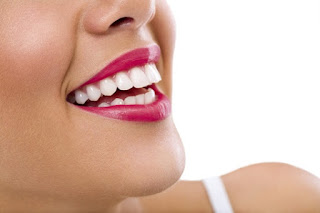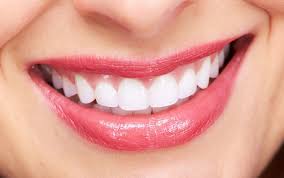Fixed vs. Removable Dental Appliances: Which is Right for You in Dubai?
Dental appliances play a crucial role in orthodontic treatment, helping to correct various dental issues such as misaligned teeth, bite problems, and jaw irregularities. Best Dental Appliances Dubai, a city known for its advanced healthcare facilities and cutting-edge dental technologies, patients have access to a range of orthodontic appliances, each designed to address specific needs. One key consideration when selecting an orthodontic appliance is whether to choose a fixed or removable option. Both types have their advantages and limitations, and the right choice depends on individual circumstances.
In this article, we'll explore the differences between fixed and removable dental appliances, their benefits, and how to determine which is best suited for your orthodontic needs in Dubai.
What Are Fixed Dental Appliances?
Fixed dental appliances are devices that are bonded or attached to the teeth and cannot be removed by the patient. These appliances are designed to stay in place for the duration of the treatment, ensuring continuous correction of dental issues.
Types of Fixed Dental Appliances:
Braces:
- Traditional Metal Braces: These consist of metal brackets and wires and are effective for treating a wide range of dental issues.
- Ceramic Braces: Made from clear or tooth-colored materials, ceramic braces offer a less noticeable alternative to metal braces.
- Lingual Braces: Positioned on the back of the teeth, these braces are hidden from view, making them an appealing choice for those concerned about aesthetics.
Fixed Space Maintainers:
- Used to hold space open for permanent teeth when baby teeth are lost prematurely, these appliances prevent neighboring teeth from shifting into the gap.
Fixed Retainers:
- Bonded to the back of the teeth, fixed retainers are used to maintain the position of teeth after orthodontic treatment, preventing them from shifting back.
Advantages of Fixed Dental Appliances:
- Consistent Results: Fixed appliances provide continuous pressure and are not subject to patient compliance issues, leading to more predictable results.
- Effective for Complex Cases: They are particularly useful for treating complex or severe orthodontic issues that require precise adjustments.
- No Need for Removal: Since they are permanently affixed, there is no risk of forgetting to wear them or misplacing them.
Disadvantages of Fixed Dental Appliances:
- Oral Hygiene Challenges: Fixed appliances can make brushing and flossing more difficult, potentially increasing the risk of plaque buildup and cavities if not properly maintained.
- Comfort: Fixed appliances, especially metal braces, can cause discomfort and irritation to the inside of the mouth.
- Dietary Restrictions: Patients with fixed appliances may need to avoid certain foods that can damage the appliances or become trapped between the brackets.
What Are Removable Dental Appliances?
Removable dental appliances are designed to be taken out of the mouth by the patient. These appliances are generally used for less severe orthodontic issues or as adjuncts to fixed appliances.
Types of Removable Dental Appliances:
Clear Aligners (e.g., Invisalign):
- Custom-Made Trays: Clear aligners are transparent trays that gradually shift teeth into proper alignment. They are a popular choice for patients seeking a discreet treatment option.
Hawley Retainers:
- Adjustable Appliance: Made from acrylic and wire, Hawley retainers can be adjusted to fit the patient’s mouth and are often used after braces to maintain tooth alignment.
Essix Retainers:
- Clear, Thin Retainers: Similar to clear aligners, Essix retainers are made from clear plastic and are used for maintaining results after orthodontic treatment.
Palatal Expanders (Removable):
- Adjustable Device: Removable palatal expanders can be used to widen the upper jaw to create more space for teeth.
Advantages of Removable Dental Appliances
- Flexibility: Removable appliances can be taken out for eating, drinking, brushing, and flossing, making oral hygiene easier to maintain.
- Comfort: Generally more comfortable than fixed appliances, as they do not have brackets or wires that can cause irritation.
- Aesthetic Appeal: Clear aligners and some removable retainers are less noticeable, making them a preferred option for patients concerned about appearance.
Disadvantages of Removable Dental Appliances:
- Patient Compliance: The effectiveness of removable appliances depends on the patient’s adherence to wearing them as prescribed. Inconsistent use can result in extended treatment time or less effective results.
- Limited Use: Removable appliances may not be suitable for complex orthodontic cases that require precise adjustments and continuous pressure.
- Risk of Misplacement: Since they are not permanently attached, there is a risk of losing or misplacing removable appliances.
Choosing the Right Dental Appliance in Dubai:
When deciding between fixed and removable dental appliances, several factors should be considered:
1. Type and Severity of Orthodontic Issue:
- Fixed Appliances: Typically used for more complex issues such as severe misalignment, bite problems, or when precise, continuous adjustments are needed.
- Removable Appliances: Often suitable for less severe orthodontic issues or as a follow-up to fixed appliances.
2. Lifestyle and Preferences:
- Aesthetic Concerns: If discretion is important, clear aligners or ceramic braces may be preferred.
- Convenience: Removable appliances offer the convenience of being taken out for cleaning and meals.
3. Patient Compliance:
- Motivation: Removable appliances require consistent wear and patient adherence. Fixed appliances ensure continuous treatment regardless of patient action.
4. Oral Hygiene:
- Ease of Cleaning: Removable appliances are easier to clean, which can contribute to better oral hygiene during treatment.
5. Cost and Duration:
- Budget: Fixed appliances, especially advanced options like lingual braces, can be more expensive than removable appliances.
- Treatment Time: The type of appliance chosen can affect the overall duration of treatment.
Conclusion:
Both fixed and removable dental appliances have their own advantages and limitations, and the right choice depends on individual needs, lifestyle, and orthodontic goals. In Dubai, where advanced dental care is readily available, consulting with an experienced orthodontist will help you make an informed decision on the most suitable appliance for your treatment. Whether you opt for the constant correction of fixed appliances or the flexibility of removable ones, achieving a healthier and more aligned smile is within reach.



Comments
Post a Comment